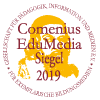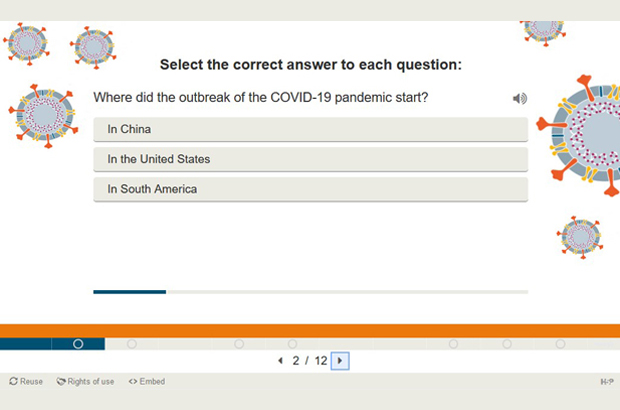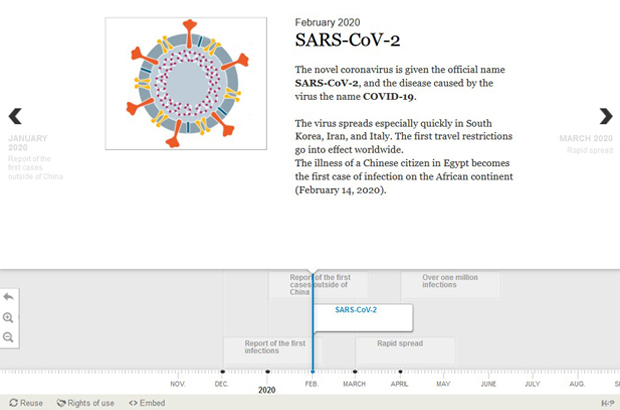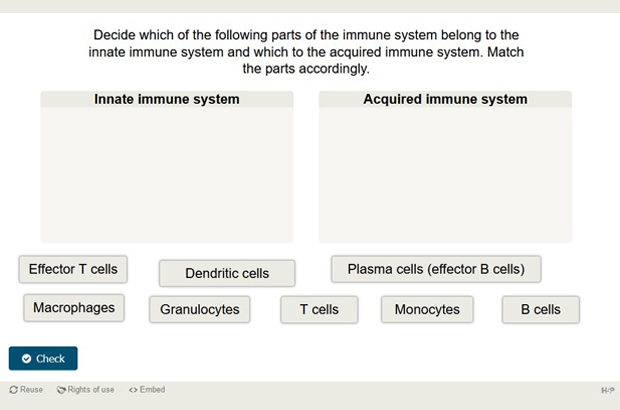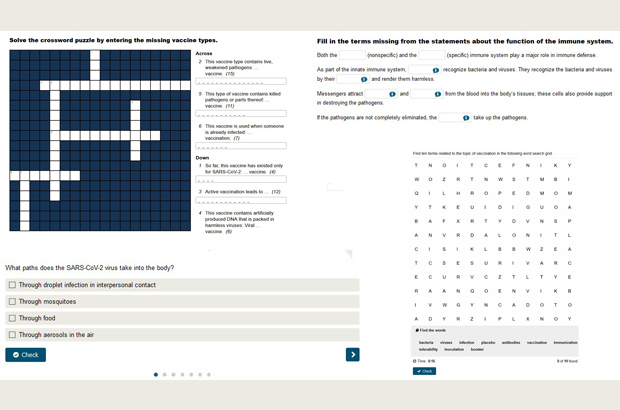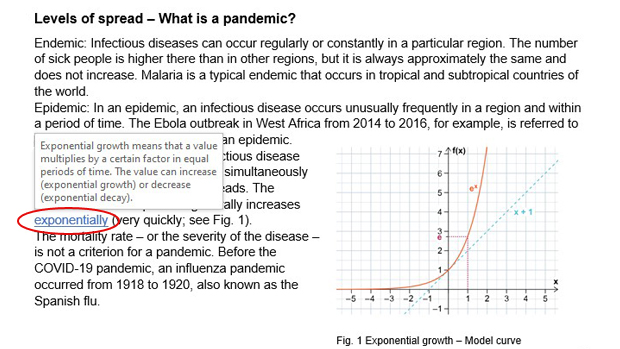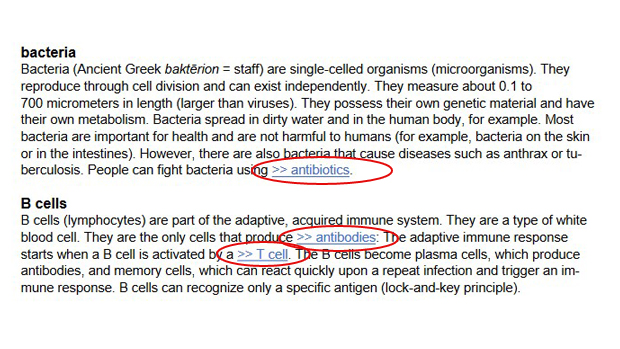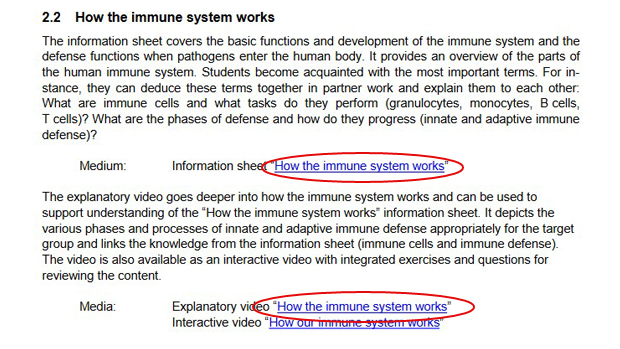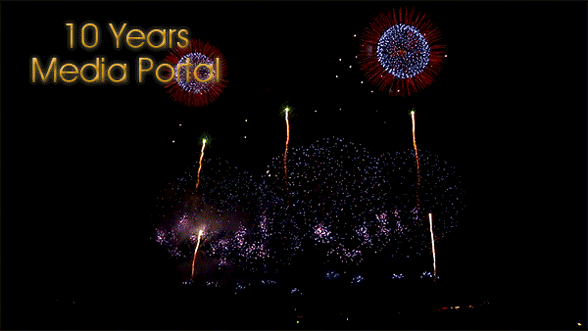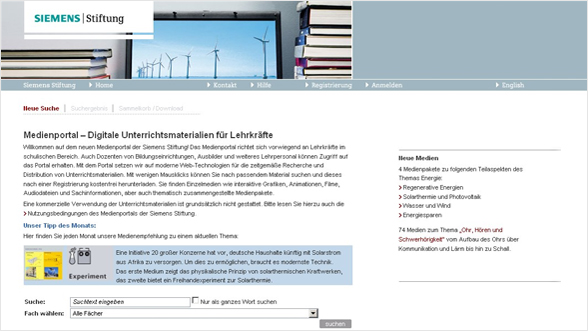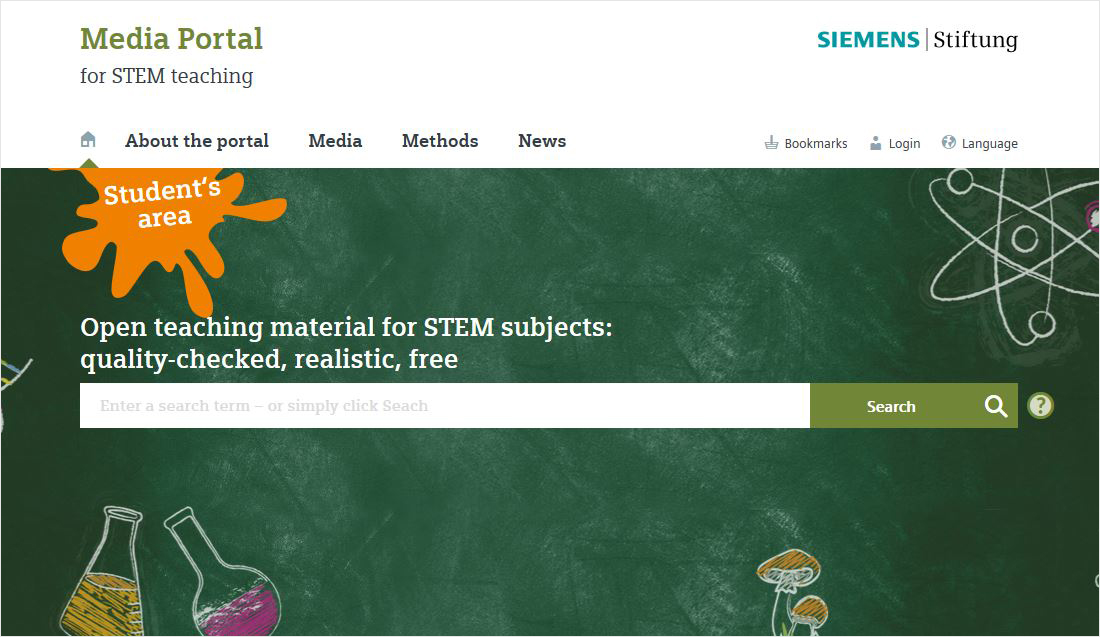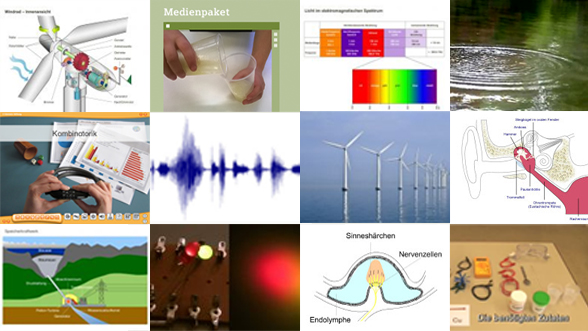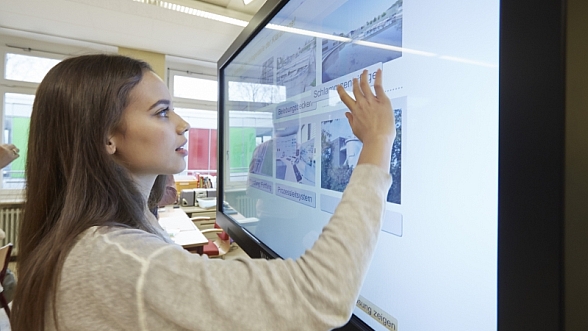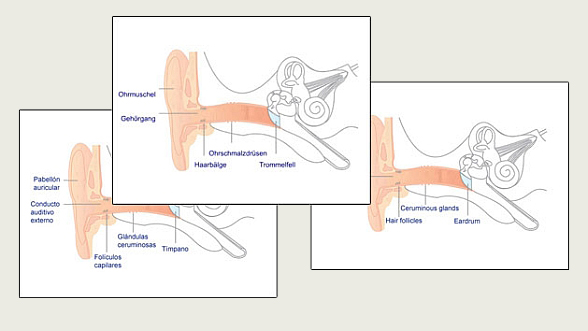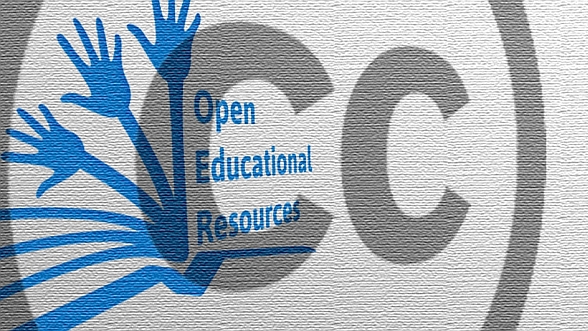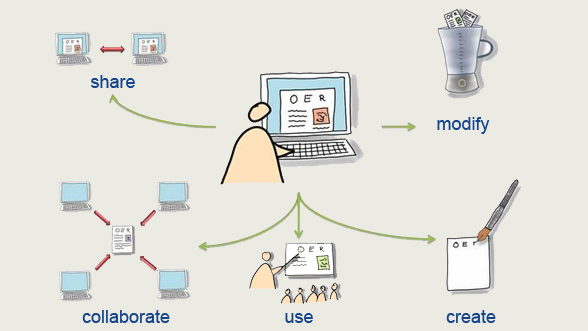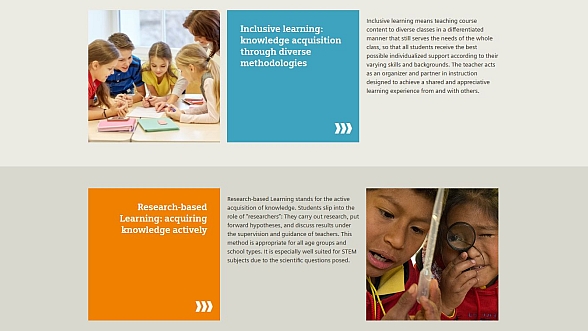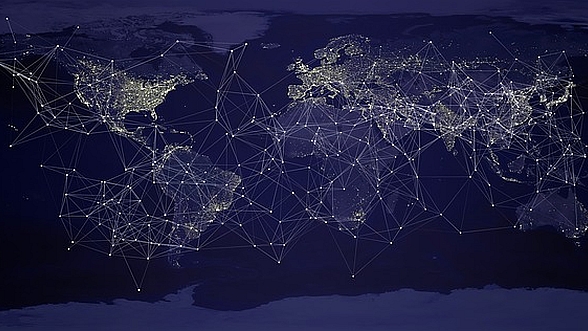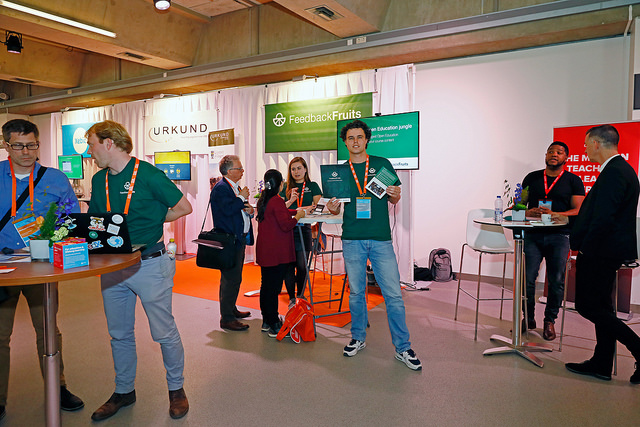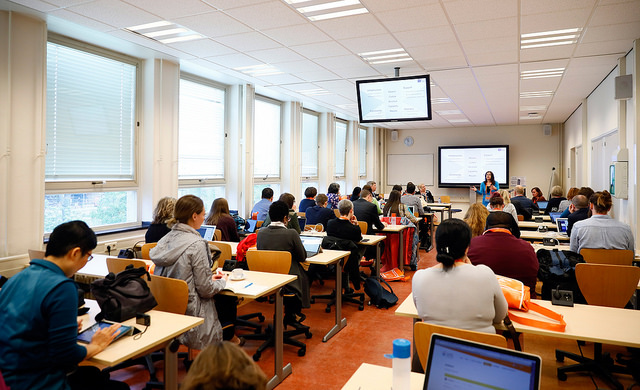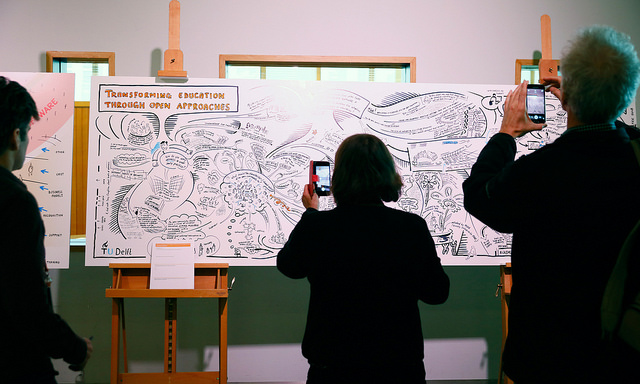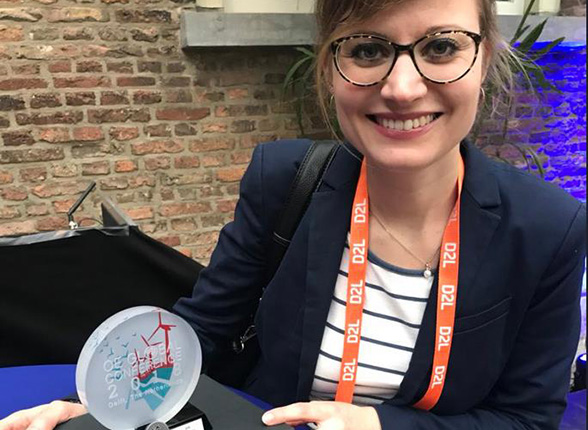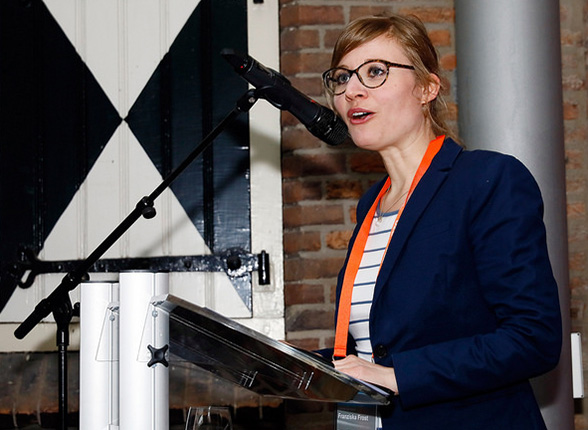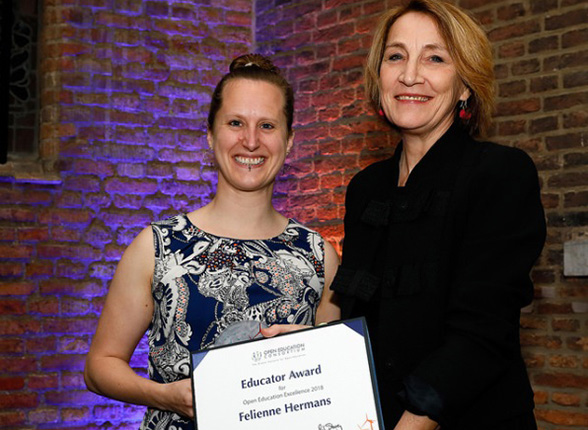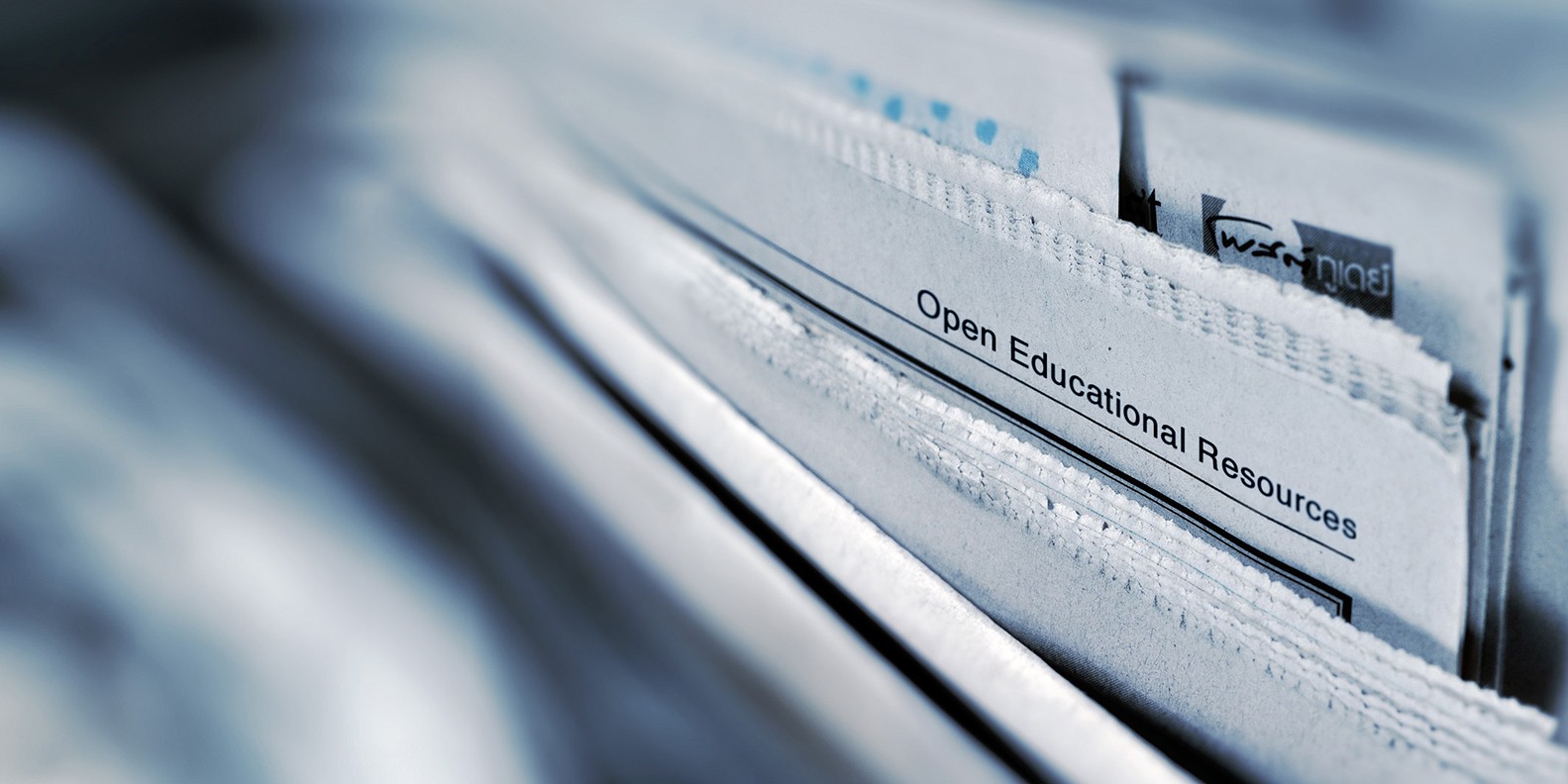
News
Here you can find the latest news
on our portal, on OER and
Creative Commons.
You don't want to miss out on any news and you are interested in practical tips on how to use our media? Simply sign up to receive our free newsletter. It is published three times a year and informs you about new media as well as current studies, events and portals from the worlds of OER, education, and STEM.
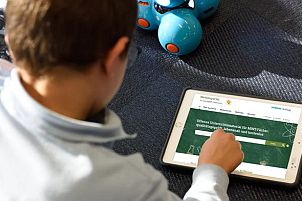
Tips on working with the Media Portal
In addition to the about 3,200 OER for STEM lessons, the Media Portal offers useful functions that can support you in networked teaching and learning with your students and their parents. Have a look to the most important ones here.
Digital materials under open license (OER) help a lot to support each other and to encourage the exchange between us: they may be modified,
augmented with your own content, and shared. It’s legal, worry-free, and easy. Our quality-checked OER for STEM lessons are interdisciplinary, for all
types of schools and grade levels, ranging from detailed texts and short videos, to experiments and interactive formats, to complete packages on various topics.
They’re available for teaching and self-learning.
But the Media Portal can do even more to support you now:
 Communicate easily with your class and their parents
Communicate easily with your class and their parents
Create personal bookmark lists where you collect the individual media files of your choice. You can share them with other teachers, students, or parents easily and conveniently at the click of a button. You can add and remove individual media files, add a descriptive text, and also limit the availability to any time period you select. Go to the instructions
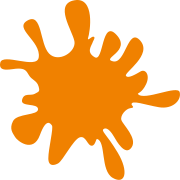 Look for the blotch: Self-learning media for your class
Look for the blotch: Self-learning media for your class
The self-learning offering follows a multimedia, diverse approach. Within the media and topic packages for teachers, appropriate materials are identified with the “student’s blotch” and can be forwarded directly to your students.
Experiments, puzzles, tests, educational games, and explanatory videos are found in a separate student's area – let the pupils explore this area independently or conduct experiments with their parents.
Find suitable content quickly and easily
Which media lend themselves to your work with your class at this special situation? Teacher instructions and detailed guidelines provide an overview of the individual media and possible usage scenarios. This enables you to quickly decide which worksheet is currently particularly suitable.
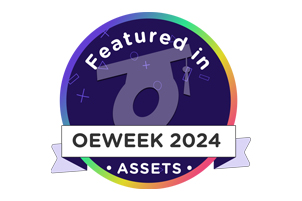
© Open Education Week, licensed under CC BY 4.0
OE Week 2024: Shaping education worldwide
Open Education Week will take place again from March 4 to 8 with workshops and panel discussions. Participants will experience how open educational materials can be used in diverse ways to shape teaching. This is an excellent opportunity for educators to discover open teaching and learning offers and to network globally in the OER community.
Whether online or in person, participants discover a varied offering each year, from events such as webinars or OER learning sprints to a wide selection of digital resources called assets. The Media Portal for STEM teaching will also be involved again this year.
OE Week was launched in 2012 by the nonprofit organization Open Education Global and is free and open to everyone. It is designed as a collaborative forum that highlights innovative open education successes worldwide and raises awareness of these successes. The wide-ranging contributions received every year impressively show the important role that OER can play. They make education more accessible to everyone, they can be collaboratively designed, and they can be adapted to specific contexts for different regions and learning groups. Get new ideas and inspiration for your own teaching and help shape the future of education!
You will find more information on the OE Week 2024 website.
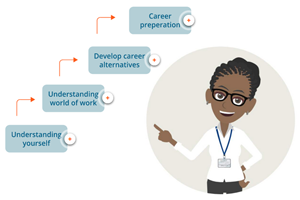
New: WBT Vocational Orientation in STEM teaching
How can you incorporate Vocational Orientation into your STEM lessons? Where can you find quality proven content? And how do you best showcase the real-world relevance of STEM? Through our new Web-based training (WBT) Vocational Orientation in STEM teaching we will support you with practical STEM teaching examples that you can apply in your classroom as well as theoretical frameworks to strengthen your teaching.

© Picture: Campaign Creators on Unsplash
New: Training on stochastics – Part III
The final part of our three-part Training on stochastics focuses on evaluating various phenomena of stochastics. It looks at and integrates situations in which randomness plays a role. In short video clips that are vivid and relevant to everyday life, Prof. Dr. Kristina Reiss covers topics such as multistage random experiments, binomial distribution, hypothesis testing, and one-tailed and two-tailed significance tests.
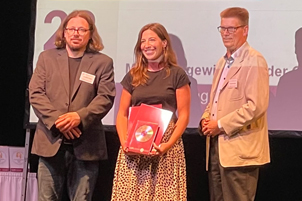
Comenius medal awarded to our climate change series
We are very honored that our climate change series was awarded the 2023 Comenius EduMedia medal. The independent jury of the German Society for pedagogic, information and media e. V. awards the medal annually to just a few educational products that especially stand out among all the submissions.
“Those who can understand and name the causes of climate change also recognize possible areas of action. In addition to imparting knowledge about the scientific processes, teachers must help the students develop an awareness of the problems and show them solutions. This series presents large, global approaches as well as shows what each person can do at a local and individual level,” said Carsten Recknagel, member of the jury, citing reasons for bestowing the award to our series in his congratulatory speech.
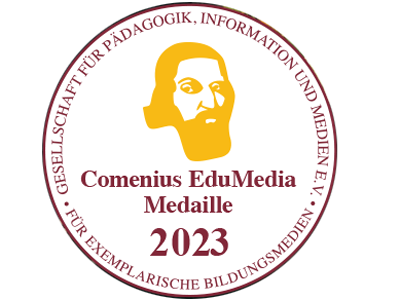
“I particularly liked the fact that the topics are not one-sided or based on the authors’ interests, but encompass multiple perspectives,” he continued. “This media neutrality is becoming increasingly important and valuable in a world with fake news and artificial intelligence. It’s so important and so valuable that the jury is awarding the 2023 Comenius EduMedia medal to Siemens Stiftung.”
In all, this year 161 submissions received the Comenius seal and 21 projects earned the medal.
Media packages of the series at a glance
Melting glaciers, extreme droughts, forest fires, and floods: The consequences of climate change are everywhere. This makes it all the more important to provide students with the necessary knowledge related to the complex topic. In this way, they can form opinions on their own, participate in discussions, and take action. The media packages of our series on climate change education cover all important topics, from basic knowledge to approaches for action, based on solid scientific research and incorporating IPCC* reports.
-
Part I: Understanding global warming
The first media package of the series conveys basic knowledge of climate change. Students explore the natural and the anthropogenic greenhouse effects and the role of greenhouse gases.
“Understanding global warming” media package -
Part II: Impacts of climate change
The second media package focuses on the impacts of climate change and the potential for mitigating risks of global warming at +1.5°C contrasted with +2°C. The students research the correlation between CO2 emissions and ocean acidification and delve into extreme weather events such as storms, heavy rain, and flooding.
“Impacts of climate change” media package - Part III will deal with the 1.5°C goal and climate justice. It will be published in the coming months.
The multimedia media packages with handouts for educators are especially suitable for students in grades 5 to 12, but they can also be used for multiple-class and interdisciplinary project days or environmental project groups. As Open Educational Resources (OER), the materials are accessible to everyone and can be legally adapted to one’s own needs.
About the Comenius EduMedia Awards
The German Gesellschaft für Pädagogik, Information und Medien e. V. (Society for pedagogic, information and media) is presenting the Comenius EduMedia Awards for the 28th time this year. The objective is to promote outstanding digital educational media as well as teaching and learning management systems. To ensure an independent evaluation, a jury of European educational experts from the Institut für Bildung und Medien (institute for education and media) assesses the multimedia products.
Website of Comenius EduMedia Award (German)
* The Intergovernmental Panel on Climate Change (IPCC) is an institution of the United Nations. The IPCC draws on independent experts to regularly assess the current state of knowledge on climate change and provides foundations for science-based political decisions by pointing out various possible response options and their consequences.
New: WBT on being a Software Developer
What does a day in the life of a Software Developer look like? What are the job prospects, and what do your students already know about artificial intelligence, computational thinking, big data, and algorithms? By combining STEAM and vocational orientation through practical examples, the new Web-based training (WBT) Vocational Orientation – Being a Software Developer encourages students to consider a career path in the field of IT.
New: Media package on vaccination
COVID-19 raised many questions in society regarding the human immune system, vaccines, how vaccines work in the body, and possible side effects. For young people to understand and conduct discussions on these topics, it is important to add knowledge about vaccinations to science lessons. Our new Vaccination media package helps teachers impart the necessary basic knowledge.
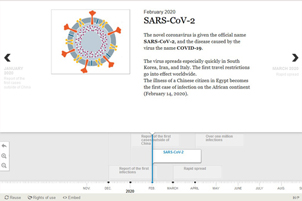
New H5P types and functions in text media
The “Vaccination” media package contains some new types of H5P exercises such as course presentations and crossword puzzles. In addition, we have added some practical functions to text media: mouse-over information, cross references, and direct links to the materials make the media better and easier to use.
All new functions at a glance
New: Climate change media package – Part II
The second part of our climate change education series focuses on impacts of climate change. While Part I was about understanding global warming, the Climate change media package – Part II addresses the connection with current extreme weather events all over the world. It examines how changes in the climate system impact people, plants, animals, and ecosystems and explains possibilities for adaptation.
New: Climate change media package – Part I
Melting glaciers, extreme droughts, and floods – the consequences of climate change are omnipresent. Our new Climate change media package – Part I launches a multi-part series all about the topic. With 19 individual media files, it is suitable for secondary schools and supports you in conveying basic knowledge to students so they can carry on discussions on the topic and take action themselves.
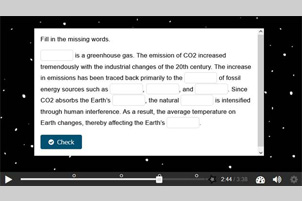
New: H5P interactive exercise format
In our climate change media package, we have published exercises in the H5P format for the first time. H5P is a free open-source tool that anyone can use to create, edit and individually adapt digital learning materials, even without programming skills. A variety of exercises facilitates interactive, low-threshold access – even to complex topics.
The publicly funded Norwegian organization Nasjonal Digital Læringsarena (NDLA, Norwegian Digital Learning Arena), which provides free digital teaching and learning media for secondary schools, initiated development of H5P in 2013.
The H5P format offers a variety of interactive exercises, such as quizzes and crossword puzzles, that facilitate very entertaining and thus low-threshold access, especially to complex topics.
In the spirit of OER thinking, you can use H5P exercises as follows:
- Modify the exercises using a free editor, such as at h5p.org
- Individually adapt the exercises to the needs of your classes
- Present the exercises in class using a suitable player
Tip: In addition, we have converted our H5P media for you so that you can also use the exercises as HTML files. While this latter format can no longer be edited, it has another advantage: After downloading the files, you can play them in any common browser without a player and without an Internet connection.
Discover the new H5P exercises
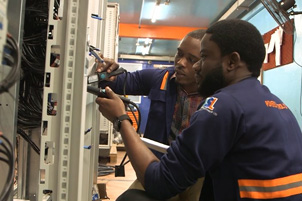
Revised: Vocational Orientation media packages
With our Vocational Orientation media packages, we address not only topics such as renewable energies but specifically the areas of electronics and electricity. Our objective is to promote complex skills that are becoming increasingly important in a networked world. In our revised version, we have adapted the related experiments to the local school context and switched to more robust materials called breadboards.

© Picture: Campaign Creators on Unsplash
New: Training on stochastics – Part II
Can you control random events? When is a statistic reliable? The second block of our three-part Training on stochastics emphasizes the systematic treatment of random events and the critical examination of data and statistics. Prof. Dr. Kristina Reiss presents the content prepared didactically for teaching in short video clips – in a lively manner and relevant to everyday life.
New on the Media Portal: WBT on being a Paramedic
Paramedics play a crucial role in strengthening the African health system. What does a day in the life of a paramedic look like? What are the job prospects and what do your students already know about sensory organs, hygiene and wound healing? By combining STEAM and vocational orientation through practical examples our new Web-based training (WBT) on Being a Paramedic helps students discover if they can see themselves in this field of work.
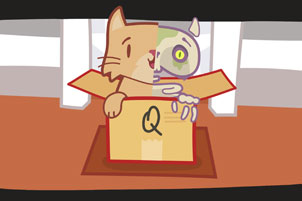
© Philipp Stollenmayer/ct.qmat
“KittyQ – A Quantum Adventure” game app
The doorbell rings. Someone has left a box at the door – and a cute kitten is sitting inside, half dead, half alive. Based on Schrödinger’s thought experiment, the KittyQ game app takes students 11 years and older on an adventure through the world of quantum physics. It’s an unusual media tip for STEAM teaching that encourages students to experiment while having fun.
“KittyQ – A Quantum Adventure” aims to get girls in particular excited about STEAM topics, especially physics, at an early age. During the adventure, the players take on 20 tricky brainteasers. Each solved puzzle unlocks a new article in the “Kittypedia,” the integrated encyclopedia. Students can thus learn basic knowledge about quantum physics bit by bit without needing to be experts – for example, about atoms and Heisenberg’s uncertainty principle. And of course, the “Schrödinger’s cat” thought experiment is explained in an age-appropriate manner. Playful elements, such as collecting virtual stickers and allowing students to design their own cat, help make the topic approachable.
The app is free and does not contain any advertising or in-app purchases. The game has received multiple awards in 2022.
“KittyQ – A Quantum Adventure” was developed by the Cluster of Excellence ct.qmat – Complexity and Topology in Quantum Matter, which has been jointly run by the German universities Julius-Maximilians-Universität Würzburg and TU Dresden since 2019. The mobile game project is sponsored by the "Research in Germany" initiative of the German Federal Ministry of Education and Research.
Website for the “KittyQ – A Quantum Adventure” game app
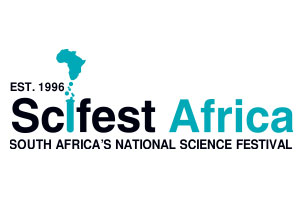
© www.scifest.org.za - Scifest Africa
Scifest Africa 2022: Back to the Basics
After two years online, Scifest Africa 2022 is returning live: South Africa‘s National Science Festival will run September 7-13 in Makhanda. Inspired by UNESCO’s current International Year, festival organizers are focusing on the key role of Basic Sciences for Sustainable Development during workshops and events. Teachers may visit the exhibition free of charge.
The goals of Scifest Africa are to foster enthusiasm and appreciation for STEMI (Science, Technology, Engineering, Mathematics, and Innovation), offer information on a wide variety of topics, and encourage the sharing of ideas. This year, for example, the festival will focus on the issue of how we can strengthen the role of basic science (physics, chemistry, math, and biology) so that we can face global problems with resilience and sustainable solutions – and in this way achieve the UN’s goals for sustainable development. However, the role of diversity, equity, and inclusive participation as well as the deliberate inclusion of art and creativity in the study, communication, and presentation of Science, Technology, and Innovation will also be key topics.
Scifest Africa, South Africa’s National Science Festival, was established in 1996 to promote public awareness, understanding, and appreciation of science, technology, and innovation (STI). The project is implemented annually by the Grahamstown Foundation and supported by South Africa’s National Department of Science and Innovation as well as various other sponsors.
The submission phase for presenters is still ongoing; the full program will appear on the Scifest Africa website in the coming weeks.
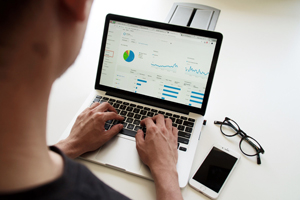
© Picture: Campaign Creators on Unsplash
New: Training on stochastics – Part I
Being able to deal meaningfully with data and understand probabilities is increasingly important: In our new, three-part training on stochastics, Prof. Dr. Kristina Reiss covers the basics in short video clips. The first part, Introduction to Stochastics, is available in our Trainings area. All content is presented with a reference to daily life and prepared didactically for teaching.
New: Basics of microcontroller programming
How could you determine the concentration of COVID-19 virus aerosols in a classroom? How do you modify an Arduino sketch so that an LED blinks differently? These and other questions are addressed in ten experiments in our new media package Basics of microcontroller programming – using Arduino. The goal is to show students how programming works and to convey ways of thinking that help them in the digitalized world (Computational Thinking).
New: Value education in STEM lessons
The Value education in STEM lessons media package contains worksheets for students and the related instructions for teachers to support value education in STEM teaching. It uses methods such as biographical learning, the value square, and the imaginary journey. The 12 individual media files are suitable for grades 1 to 9.
New: Vocational Orientation WBT as individual media
The videos and audio interviews included in the Web-based trainings Being an agripreneur and Being an electrician are now also available individually. This allows teachers to access them instantly without navigating through the whole training course. Educators can leverage the Vocational Orientation content on the Media Portal to support their efforts to bridge the gap between STEM theory and practice.
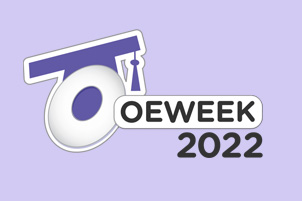
© Open Education Global, licensed under CC BY 4.0 international
Open Education Week celebrates 10th anniversary
From March 7 to 11, 2022, OE Week will begin its annual exchange on the latest achievements of Open Education around the world – online, free, and open to all. Be inspired, learn about new projects, or submit your own contribution.
Since its launch in 2012 by Open Education Global, OE Week has been viewed as a collaborative forum that highlights and raises awareness of innovative open education successes worldwide. Practitioners, educators, and students have an opportunity to develop a better understanding of open educational practices, not least through the manifold, exciting ideas from the community around the world. Once OE Week is over, all offerings will still be available online on the project page.
For more information and the link to the submission form, go to the website for OE Week 2022.
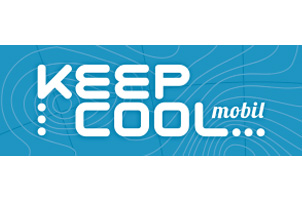
© Carl von Ossietzky Universität Oldenburg / Eduversum GmbH
Playing with the climate – and learning a lot
Global warming can only be stopped if everyone works together: In the multiplayer game KEEP COOL mobil, your students virtually take control of global metropolises and directly experience how their local decisions impact the global climate. But watch out: If the temperature indicator increases by over 2°C, everyone loses the game!
Would I rather build a less expensive coal-fired power plant or will I invest in green energy for the long term? Can I satisfy my citizens’ political demands? And how do I best protect my city from the consequences of climate change? Up to 50 players can take on these and other climate policy challenges in KEEP COOL mobil. To achieve the objective of the game of keeping global warming below 2°C, the players must constantly strike a balance between actions at the local and the global levels. It quickly becomes clear to all participants that without negotiations and cooperation with other cities, they will not make progress.
The online game is suitable for higher grade levels and can be used to support lessons on the topics of the environment, climate, and sustainability: The students experience in a playful way how conflicts of interest regarding (environmental) policy have an impact on global warming. They learn to establish correlations, recognize possibilities for action, and act accordingly.
KEEP COOL mobil can be played both on desktop computers and on all current smartphones and tablets with a screen size of at least 4 inches and with a sufficient Internet connection. You will find additional information on the game’s technical requirements and an introductory video on how to play the game here.
KEEP COOL mobil is published by the Carl von Ossietzky University of Oldenburg (Germany), together with Eduversum GmbH. The project was sponsored by the German environmental foundation Deutsche Bundesstiftung Umwelt. The developer says, “Our games provide a playful access to the content and conflict lines of climate policy. They set thought-provoking impulses and enable a change of perspectives by immersion of the players in the game roles. But using KEEP COOL successfully means to inspire and achieve a fruitful and intensive discussion between the players during and after the game.”
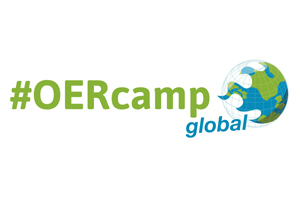
© J&K – Jöran und Konsorten GmbH & Co. KG
Register now: First global 48-hour festival all about OER
The first OERcamp.global will take place December 9-11, co-hosted by the German Commission for UNESCO. For 48 hours online, everyone worldwide can learn, share, and network about Open Education. You will learn about international projects and players true to the motto “Act locally – share globally.”
The festival will start on December 9 with a wide range of sessions, for example, on computational thinking at elementary schools, the open-source tool H5P, and the democratizing effect of OER. To be able to participate, you just need to register for free.
OERcamp.global will be run as a BarCamp. This open format thrives on the interaction in the sessions and on joint brainstorming. Participants may also submit their own contributions, for instance, to present a project. They can exchange ideas with the other participants, learn from international experiences, and thus expand knowledge on the use of Open Educational Resources.
Sessions and plenary hours will take place continuously for 48 hours: Simply select program items that best fit your agenda – or meet with the global OER Community in the plenary assembly to discuss a wide range of topics.
The participatory festival is organized by the German Commission for UNESCO and the educational agency J&K – Jöran & Konsorten. J&K hosted the first OERcamp in Germany back in 2012 to strengthen the OER Community, thus promoting the use and development of open educational media in the long term.
You can find additional information on registration and the program on the
OERcamp.global website
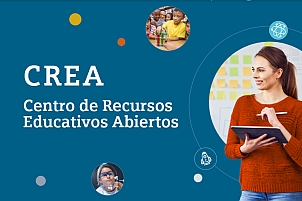
© Siemens Stiftung
CREA launches – Our new education portal for Latin America
Centro de Recursos Educativos Abiertos, or CREA, is our new home for the materials of the previous „Portal de Medios“, combined with a variety of additional educational offerings developed by our cooperation network in Latin America. Everything will remain the same for German- and English-speaking users.
Why launch a new Media Portal for Latin America?
Since founding the Siemens Stiftung, we have supported teachers and educational institutions in our focus regions of Germany/Europe, Africa, and Latin America through our educational projects. We help establish regional and national networks to jointly initiate innovative projects that promote qualitative STEM lessons.
When also in Latin America nearly all schools closed due to the coronavirus pandemic and teachers had to switch to distance teaching, the idea of a common media platform where all partner organizations could make their high-quality STEM media available in one place emerged in the local STEM network. So already in spring 2020, the new CREA portal was created, initially as a simple collection.
As of now, CREA is a full-fledged platform comparable to the Media Portal with professional filter functions and currently 1,300 STEM media, developed and provided by renowned network partners such as the nonprofit organization INNOVEC (Innovación en la Enseñanza de la Ciencia A. C.) and the OCE (Office for Climate Education).
In the coming months, many more media and continuing education for teachers will be created and gradually integrated into CREA.
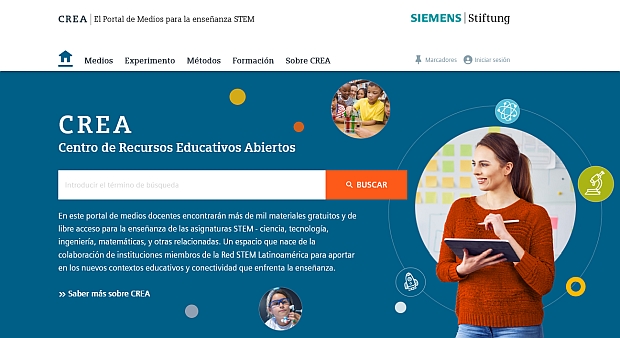
What does the name CREA mean?
CREA stands for Centro de Recursos Educativos Abiertos, the Center for Open Educational Resources. On CREA as well, all media are freely accessible and provided free of charge as OER. We thus now support the OER movement in Latin America together with our partner organizations and ensure that the media are accessible to everyone and can be adapted by teachers to the needs of the learning groups.
What will change for you and your work with the Media Portal?
You will still have direct access to our English and German media on the Media Portal. This means everything here will remain the same for you.
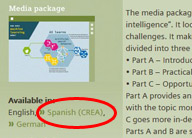 As of today, all Spanish media have been moved to CREA. However, the media created in Spanish will still be offered to you in the detailed media view as long as a translation is available. When you access the media, you will be forwarded to the new CREA portal.
As of today, all Spanish media have been moved to CREA. However, the media created in Spanish will still be offered to you in the detailed media view as long as a translation is available. When you access the media, you will be forwarded to the new CREA portal.
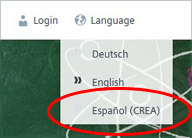 You can go directly to the new CREA portal via the language selection function on the navigation bar of the Media Portal and can use the media search function there.
You can go directly to the new CREA portal via the language selection function on the navigation bar of the Media Portal and can use the media search function there.
Does this pique your curiosity? Go directly to the new CREA portal
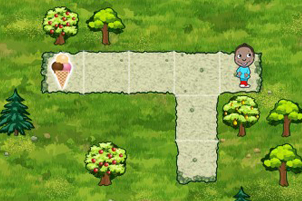
New: Online training on Computational Thinking
In the discussion of what skills students need to be well prepared for living in the digital world, Computational Thinking has gained importance. It promotes critical and analytical thinking and specifically enables systematic problem-solving processes to be effectively integrated into STEM lessons. Our new training section provides an interactive training on Computational Thinking: It offers insights into the topic and shows how it can be enhanced in class.
New: Flash has moved to HTML
We’ve done it! We have gradually converted all of our Flash media to HTML format. As a result, around 450 media and over 40 interactive whiteboards are available again on the Media Portal in three languages for use in class. You can load them directly as usual in all current browsers, including on mobile devices. You don’t have to install or upgrade anything because Firefox, Opera, Safari, and other browsers support HTML format.
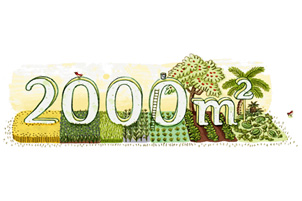
© Zukunftsstiftung Landwirtschaft
How many acres are on your plate?
Mathematically, the amount of arable land per person in the world is 2,000 m². Food and everything else one person needs should grow on this field. In show gardens and on a website for children aged 10 and up, the international project of the Zukunftsstiftung Landwirtschaft is showing what this looks like in reality.
The idea is that everything a person needs must thrive on a 2,000 m² field. In addition to fruits, vegetables, and grains, the field must have space set aside
for growing animal feed, raw materials for clothing, and fuel. As a result, the bulk of arable land is no longer used for direct food production. This imbalance
in global cultivation is modeled true to scale on the Global Field using current figures from the Food and Agriculture Organization (FAO), making it tangible on
a small scale. The first 2,000 m² Global Field was planted in Berlin in 2013. Since then, eleven additional show and vegetable gardens that are open to visitors
have been added around the world, including in Kenya, Congo, Scotland, and France. The project is intended to create awareness about how individual consumption
is closely linked to the cultivation of cropland and thus directly influences global nutrition.
The lovingly designed website invites you to discover a wealth of information on all aspects of land and the cultivation of arable land, videos, background on
all the Global Fields, and much more.
The Global Field is a highlighted project of the UN Decade on Biological Diversity 2020.
Go to the Global Field website
New on the Media Portal: WBT on being an Agripreneur
The two-part Web-Based Training Vocational Orientation – Being an agripreneur, that was first published on atingi, is now available on the Media Portal and accessible without registration. It gives an overview of the job Agripreneur through personal insights from people working in the field, information on job-relevant skills, and knowledge on natural science regarding the occupation. The content is created for self-learning.
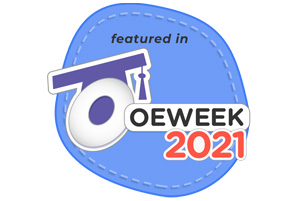
CC BY 4.0 Open Education Week
Participate and discover: Open Education Week 2021
This year’s international OE Week will show how multifaceted and lively the OER movement is. From March 1 to 5, committed players worldwide will virtually provide insights into their latest projects, share their experiences in webinars, and present exciting teaching and learning media.
OE Week was launched in 2012 with the aim of raising awareness about open education. It offers educators in particular an excellent opportunity to find new OER offerings and to network globally in the OER community. The Media Portal will also be involved again this year.
Initial offerings have already been published and are just waiting to be discovered. Even after the week has come and gone, all events and assets will remain online for viewing on the Open Education Week website.
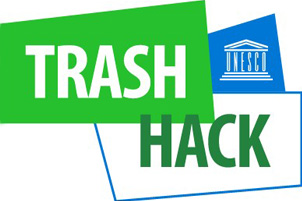
© UNESCO
UNESCO’s new teacher’s guide takes on global waste
Small actions lead to big results! UNESCO’s new teacher’s guide “Trash Hack – Action learning for sustainable development” offers great ideas for addressing the topic of waste in the classroom. Action-based activities show how students can help tackle this global problem with small changes in their daily lives.
The 19-page teacher’s guide is especially suitable for teaching in lower secondary education. Thanks to the transformative learning approach, you can flexibly
adjust the contents and activities to regional contexts, groups of students of any age and learning level, and the learning environment – whether it’s in the
classroom or learning from home.
The practical ideas are designed to promote important skills such as forward-looking and critical thinking, collaboration, and integrated problem-solving, which
are fundamental to achieving the 17 Sustainable Development Goals (SDGs). In addition, the guide categorizes the topic of waste in the context of three goals:
“12 Responsible Consumption and Production”, “14 Life below Water”, and “15 Life on Land”. Illustrative graphics introducing each higher-level SDG provide a
quick, clear overview of facts and figures, followed by action-based activities that give you and your students an opportunity to share ideas and immediately
take action. For example, how about creating artwork from trash?
The teacher’s guide is part of UNESCO’s global Trash Hack campaign. It aims to unite schools around the world to take
action against waste based on the motto “Let’s tackle the problem together!”
Licensed under CC BY-SA, the contents and graphics may be copied, adapted, and used in teaching as long as the license terms and conditions are met.
Teacher’s guide: Trash Hack – Action learning for sustainable development
New: Media package on algorithms
Automated processes such as navigation, traffic lights, and analysis of personal data online involve algorithmic systems. The media package Algorithms in our everyday lives covers how these systems work, where they occur, and what we should know about them. It comprises 23 multimedia files with increasing levels of difficulty for information technology, engineering, business education, ethics, and civics and politics starting from grade 7.
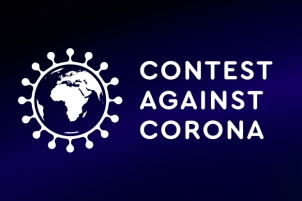
© atingi
Contest Against Corona until December 11
Knowledge is the best way to fight COVID-19. With the Contest Against Corona, the e-learning platform atingi provides a fun way to gain valuable knowledge about the virus by playing a quiz against thousands of others, available in English, French, and Arabic. You even have the chance to win prizes.
The German Corporation for International Cooperation GmbH (GIZ) is inviting you to join an online multiplayer quiz game. The event's topics include putting COVID-19 in context, the One Health approach, living with COVID-19, and misinformation and ‘fake news’. You can not only build valuable Corona knowledge but also compete with others, as an individual or as part of a team. You also have the chance to join topic related online events, but see for yourself.
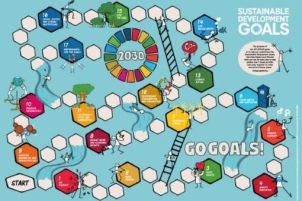
© United Nations
“Go Goals!” – The clever sustainability board game
The “Go Goals!” dice board game makes learning fun. The players answer exciting questions about the United Nations’ 17 Sustainable Development Goals, learning in a playful way what sustainability means and why it is so important. Simply print the game and start the questions!
The game takes 30 to 40 minutes and is geared toward players aged eight to ten years. It offers a great opportunity to incorporate the Sustainable
Development Goals (SDGs) of the United Nations in your lessons. Is it true that fewer girls around the world go to school than boys? What can each
and every person do to use less water? Groups of four to six players roll dice and move through these and many other questions in “Go Goals!”. As soon
as a player’s token lands on an action field, a quiz card with possible answers is read aloud. As the players gain knowledge about the topic of
sustainability, they also get a sense of what social responsibility means, all while having lots of fun.
“Go Goals!” is one of the resources offered by the United Nations. You can download and print the game sheets for free. They are available in several languages.
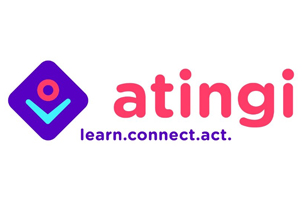
© atingi
New Web-based training on agripreneurship
Following our Web-based training (WBT) on the electrician profession, our second WBT focuses on the job profile of the agripreneur – a combination of agriculture and entrepreneurship. The WBT is an interactive course for students that links STEM and Vocational Orientation and shows various perspectives and innovations in the agricultural sector.
You can find the WBT on the atingi e-learning platform that can also be accessed via mobile phones. We are cooperating with the African e-learning platform atingi
to provide free access to high-quality digital STEM learning content.
Web-based training Agripreneur
New: Vocational Orientation media packages
We have provided new media packages on Vocational Orientation that focus on the link to STEM, for instance, on the topic of renewable energies. Our program aims to enable teachers to bridge the gap between school theory and practical application based on the curriculum. The subject didactics are supplemented by corresponding Documents for teachers.
New: Media package Artificial intelligence (AI)
What is AI? How does it work? Where is it used? Our new media package Artificial intelligence presents students in grade 7 and higher with basic knowledge and the opportunities and challenges of AI. With a teacher’s guide, video, audio interviews, documents, graphics, and interactive exercises, the media package is suitable for engineering and information technology, but also for ethics, civics and politics, and business education.
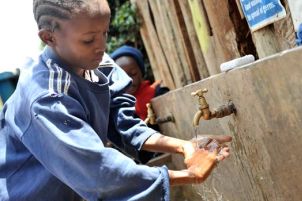
© Siemens Stiftung
Podcast for children and young people
The podcast Coronavirus For Kids, And The Science Of Soap answers questions about COVID-19 in a manner appropriate for children. Infectious disease doctor Krutika Kuppalli, who studies global pandemics, is one of the guests, and chemistry professor Palli Thordarson talks about the science behind why washing your hands with plain old soap and water is so effective against germs.
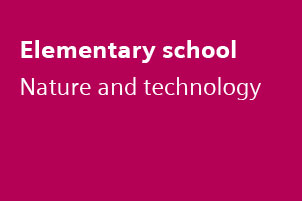
Media tip for teaching from home: Energy sources
The information sheet An overview of energy sources shows all the different energy sources and what possibilities they offer. In the interactive exercise Advantages and disadvantages of energy sources, the students can apply what they have learned.
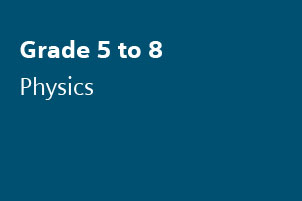
Media tip for teaching from home: Bending water
A stream of water is "bent" from the vertical towards an electrically charged object. Why does this happen? The video Bending water demonstrates this phenomenon with an experiment. Students can then complete the worksheet Bending water based on their learnings. The interactive hints for the worksheet help students using QR codes.
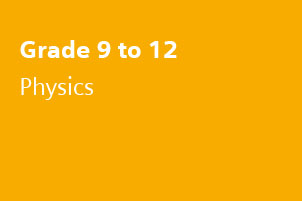
Media tip for teaching from home: The Stirling engine
How a Stirling engine and the Carnot cycle work are explored through the experimentation instructions, which includes questions for students to answer. The Video (no audio)shows a Stirling engine in operation and helps students visualize the process.
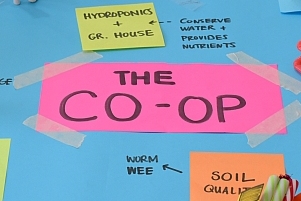
Tip: Design Thinking in STEM lessons
Design Thinking is an excellent method in STEM lessons for making global challenges tangible in a creative way and for developing solutions. Students work in teams to develop ideas, build prototypes, and test the prototypes’ impact. We present the concept in depth on our Methods page.
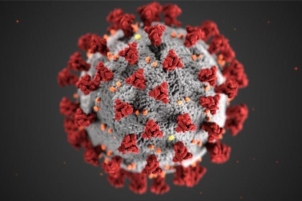
© Smithsonian Science Education Center
COVID-19! How can I protect myself and others?
The Smithsonian Science Education Center has developed a new rapid-response guide for youth ages 8–17. The guide, which is based on the UN Sustainable Development Goals, aims to help young people understand the science and social science of COVID-19 as well as help them take actions to keep themselves, their families and communities safe.
The guide “COVID-19! How can I protect myself and others?” was developed in collaboration with the World Health Organization (WHO) and the InterAcademy Partnership (IAP), and is part of the Smithsonian Science for Global Goals project. The guide is free and available to youth in more than 20 languages.
Through a set of seven cohesive student-led tasks, participants engage in the activities to answer questions previously defined by their peers. The questions explore the impact of COVID-19 on the world, how to practice hand and respiratory hygiene and physical distancing, and how to research more information about COVID-19. The final task teaches youth how they can take action on the new scientific knowledge they learn to improve their health and the health of others. Each task is designed to be completed at home, but could be completed in school with a teacher’s guidance.
The guide includes updated research, activities, quotes from scientists and frontline public health officials, and physical and emotional safety tips on COVID-19. It also integrates inquiry-based science education with social and emotional learning and civic engagement.
Download the guide on the website of the Smithsonian Science Education Center
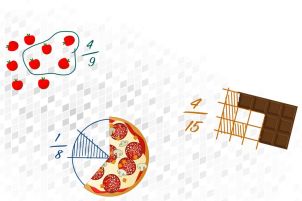
New: Interactive e-book on doing fractions
An interactive e-book from the TUM School of Education provides an exciting gateway to doing fractions, with illustrations, learning support, tasks, and games. Designed for about 15 lessons, the e-book is appropriate for both classroom instruction and self-learning.
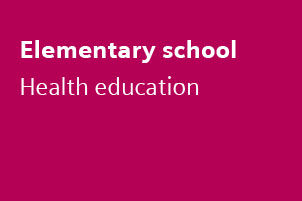
Media tip for teaching from home: The human ear
The Structure and function of the ear information sheet shows how this sense organ is structured, how it functions, and how the sense of hearing and the sense of balance differ. In the Structure of the ear interactive exercise, the students label the parts of the ear by dragging and dropping.
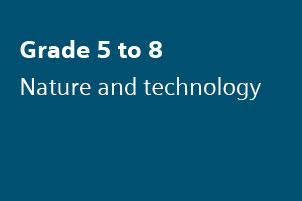
Media tip for teaching from home: Water shortages
The interactive information module Overcoming water shortages presents various solutions to this problem, from local water production to global prevention measures. In addition, the link list Water shortage and drinking water is suitable for own research.

Media tip for teaching from home: Energy converters
From sunbathing to nuclear fusion: The examples in the Energy conversion processes in everyday life information sheet illustrate the variety of conversion processes. The students can apply their knowledge in the Energy converter interactive matching exercise.
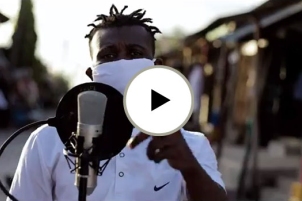
© Timamu
Informative COVID-19 song from Tanzania
In his song Corona Tanzanian musician Timamu highlights how everyone can help fight the spread of Corona. Creatively he emphasizes the importance of personal hygiene and seeking medical help when experiencing any symptoms.
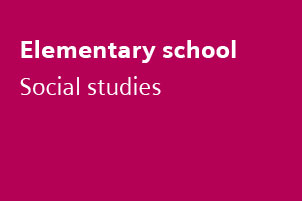
Media tip for teaching from home: Customs
The Festivals in different countries information sheet can perhaps provide excellent information, especially in these times, about the value that traditional large festivals have for many people. In the interactive exercise of the same name, students match the festivals to the countries.

Media tip for teaching from home: pH value
The pH value in the human body information sheet together with the pH values in the body and in everyday products interactive graphic provide the theoretical principles for acids, bases, and pH value. The students can apply the learned material using an interactive exercise.
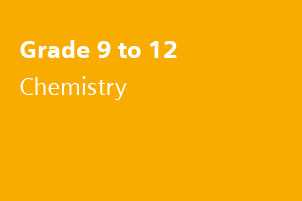
Media tip for teaching from home: Electrochemical voltage
The Electrochemical voltage series information sheet introduces the topic, and the students can test their knowledge using the Designing an electrochemical voltage series matching exercise. The voltage series is illustrated in the Daniell cell simulation, which shows the discharge process of a galvanic cell.
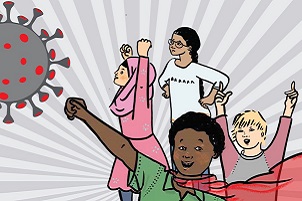
© Welthungerhilfe / WASH United
Comic strip from Welthungerhilfe: No chance for corona
Amina and her friends are stuck at home. Instead of playing together outside or going to school, they are trapped with their parents all day long, often in confined spaces. A comic strip and a video from Welthungerhilfe for children and young people age 10 and older explain the coronavirus and the associated restrictions and preventive measures.
Although children and adolescents are not likely to become seriously ill with COVID-19, they are massively affected by the corona pandemic. Why is it so important to stay at home, maintain proper distance, and wash their hands regularly? What is corona and how is the virus transmitted? Understanding this and knowing how to protect themselves and others helps the young readers deal with the difficult situation. The clearly designed comic strip sensitively addresses the young people’s questions and concerns, explains why normal life is so drastically restricted at this time, and provides tips for preventing the spread of the virus.
The comic was developed by the German aid organization Welthungerhilfe and WASH United in conjunction with the Institute for Hygiene and Environmental Medicine in Berlin, and it can be downloaded free of charge. It may be used, reproduced, and disseminated for non-commercial purposes without limitation. Translation into various African languages such as Arabic, Kiswahili, and Somali is planned. The story of the four friends is also available as a YouTube video.
To the materials on the Welthungerhilfe website.
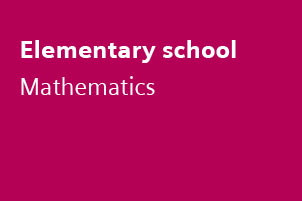
Media tip for teaching from home: Symmetry
The Symmetry – what is that? information sheet uses simple words and examples from everyday life to explain the basics of the subject matter. The learned material can be applied using these two interactive exercises: Which of the objects does not have reflection symmetry? multiple-choice test and Arithmetic with a mirror calculation task.

Media tip for teaching from home: Water cycle
The Earth’s water cycle (student instructions) experiment can be carried out as a weekly task. The required materials are usually available at home. The Experiment on the water cycle interactive multiple-choice test checks the students’ understanding.

Media tip for teaching from home: Renewable energies/Electricity at home
The students can become acquainted with the topic on their own using the Overview of energy sources information sheet and the Advantages and disadvantages of energy sources interactive graphic. A possible task using the Comparison of electricity production costs information sheet is for the students to work together with their parents to calculate the costs in their own home.
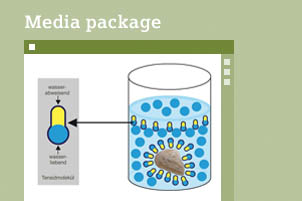
Tip: Why do we wash our hands?
Regular, thorough hand hygiene is an effective protection against pathogens such as the coronavirus. How come? Our media package "Skin and hygiene" provides concrete, varied experiments and information materials to explain correlations and raise awareness to the topic: How does soap work? How can diseases be spread via our hands? Why does washing our hands protect?
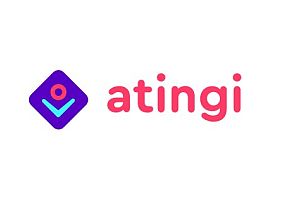
© atingi
atingi in Africa
The new digital learning platform atingi aims to reach young people in Africa with e-learning offerings. By providing need-based, free teaching units, the platform hopes to increase vocational training opportunities and thus improve the potential for income.
atingi was initiated by the German Federal Ministry for Economic Cooperation and Development (BMZ) and implemented by the Deutsche Gesellschaft für Internationale Zusammenarbeit GmbH GIZ (German Society for International Cooperation). Siemens Stiftung contributes content on vocational orientation in the STEM fields.
Visit atingi
New: media package Big Data
Instagram, WhatsApp, or in virtual gaming worlds – most young people use and leave behind large volumes of data, usually unknowingly. The media package "Big Data" helps students recognize the effect of big data and form their own opinion on the topic. With an explanatory video, practical examples and interviews, it provides a comprehensive working basis for teaching at secondary schools.
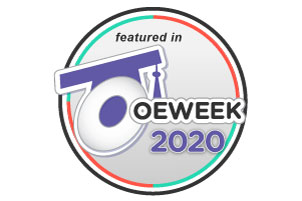
CC BY 4.0 Open Education Week
Participate in the Open Education Week
From 2 to 6 March, with around 220 submissions, the spectrum of the international open education movement will once again be on show: The week-long OE Week spotlights amazing work from over a dozen categories including live, face-to-face events, webinars, projects, and resources. Of course, the Media Portal will be part of it.
Founded in 2013 by the Open Education Global (previously Open Education Consortium), the goal of Open Education Week is to raise awareness and showcase impact of open education on teaching and learning worldwide.
All submissions and information on how to participate can be found on the Open Education Week project page.
Editors' tip: Photosynthesis
Updated: The photosynthesis is the only natural process, which can store solar energy permanently and at the same time ensures the formation of oxygen. The updated media package explains the physiological process through interactive graphics, videos and a simulation. The materials are suitable for chemistry and biology classes from grade 7 onwards.
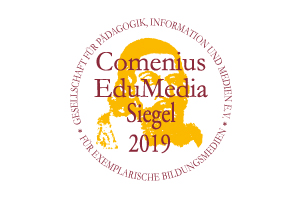
Comenius EduMedia Seal for the Media Portal
Great joy for our education team: The Gesellschaft für Pädagogik, Information und Medien e. V. was very impressed with the quality of our media and our commitment to high-quality STEM lessons, and has honored the Media Portal with the prestigious Comenius EduMedia Seal.
“It makes us proud to receive this award for the Media Portal, which we care about very deeply,” said Corinna Hartung, project manager of the Portal. “It confirms our commitment to support teachers in designing innovative, digitally enhanced lessons with quality-tested media. This award will certainly help the Media Portal become even better known, and the educational media, the teacher handouts, and the method pages will be used even more frequently.”
The number of users of the free Media Portal already nearly doubled last year. One reason is certainly the fact that all materials are offered as Open Educational Resources (OER). This is an advantage especially in diverse classrooms, because it allows teachers to adapt, individualize, and jointly enhance the OER to meet their teaching and support needs without violating the law.
About the Comenius EduMedia Awards
The Gesellschaft für Pädagogik, Information und Medien e. V. is presenting the Comenius EduMedia Awards for the 24th time this year. Its goal is to promote outstanding digital educational media as well as teaching and learning management systems. To ensure independent evaluation, a jury of European educational experts from the Institut für Bildung und Medien assesses the multimedia products.
Comenius-EduMedia-Award 2019 (German)
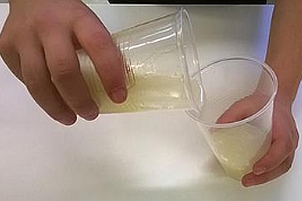
Editors' tip: Separation methods
Are pan drippings and salad dressings emulsions? Which separation methods are suitable for producing drinking water from seawater? The Mixtures of substances and separation methods multiple choice test from the Experimento | 10+ How does waste separation work? media package provides 18 questions for students to check their knowledge in chemistry class.
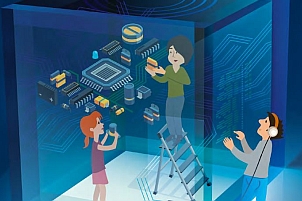
© Science on Stage
Coding in STEM education – Basic programming skills
Can you program a watering can? Or measure the temperature with a glove? The Coding in STEM education brochure published by Science on Stage e.V. shows how tasks like these can be implemented using microcontrollers. It provides practical advice for elementary schools and especially for secondary schools.
An international team of teachers presents concrete hands-on examples and practical advice in 11 teaching units. These units show how programming can be learned in biology, chemistry, technology, mathematics, and physics lessons using microcontrollers such as Arduino and Raspberry Pi, even if you aren’t an IT expert.
The brochure is suitable as an introduction to coding for both teachers and students. Quick success is fun, provides motivation for the topic, and creates an interest to learn more. The material is available free of charge as a print version or PDF file.
Materials for "Coding in STEM education"
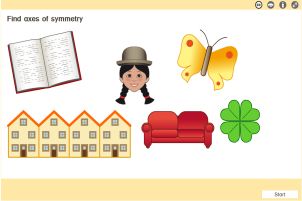
Editors' tip: HTML5
Our interactive exercises and learning modules are going mobile: We’re replacing the Adobe Flash format with the open standard HTML5. This makes it possible to use the materials on all mobile devices without running Adobe Flash Player. Here you’ll find all the media that have already been converted, including Trade winds, Find axes of symmetry, and The natural water cycle.
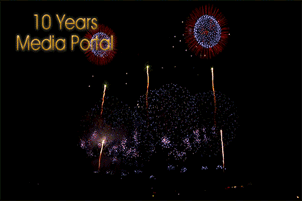
CC BY-SA 4.0 Dm mami - Own work
The Media Portal celebrates its birthday
It was exactly ten years ago, in May 2009, that we launched the Media Portal. Our goal: to provide teachers with free, high-quality digital teaching materials for the STEM subjects. A lot has happened since then. Curious? Click through our photo gallery, where we’ve chronicled the developments of the past ten years for you.
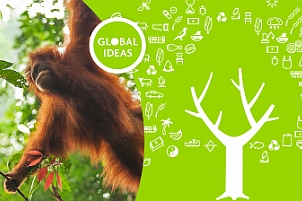
© Deutsche Welle
Environmental protection in the classroom: Three diverse learning packs
Would you like to teach the topic of environmental protection to your class in a diverse, easy-to-understand way? With the free Global Ideas learning packs, the environmental series from Deutsche Welle, you can use an effective, exciting multimedia approach to cover topics such as plastic waste or the forest. The target group is students between the ages of 12 and 16.
The materials illustrate worldwide correlations and offer a compelling global approach. The videos, articles, and interactive Web documentation consist largely of journalistic content by Deutsche Welle prepared for use in teaching. Specially developed games, posters, experimentation instructions, and worksheets round out the offering. Handouts for educators help you prepare and teach the units. You can use the contents online, download them, or request to have a printed version sent to you with a DVD. The materials are available in German, English, and Spanish and may be used by educational institutions for non-commercial purposes.
Global Ideas learning packs
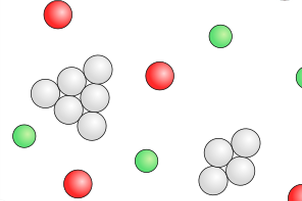
"Teilchenmodell Rauch" from B.Lachner under a CC0 license.
Free platform for clipart
Whether you’re looking for a schematic design for an experiment, a diagram, or an animated drawing: At openclipart.org you’ll find an extensive collection of illustrations to make your teaching materials come to life. All clipart is available with no registration required under a CC0 license. That means that it can be copied, modified, compiled, and shared without restriction.
The platform offers more than 150,000 pieces of clipart on various topics in the form of abstract representations, drawings, and illustrations. The search and download features are also simple and easy to use. Users can also upload their own clipart to the platform, make it available to the public, and discuss it with the community. Under the Creative Commons license CC0, the author waives all rights to the material. The clipart enters the public domain and may be used without restriction.
Visit openclipart.org
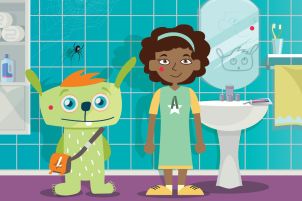
© Science on Stage Deutschland e.V.
Lilu’s House: Language Skills through Experiments
Why does the mirror fog up when I take a shower? Why do I see my reflection upside-down in a spoon? For children, everyday life is full of questions. The new brochure titled “Lilu’s House – Language Skills through Experiments” from the nonprofit educational initiative Science on Stage Deutschland e.V. provides ideas for science topics in personal, social, and health education (PSHE) in elementary school.
Lilu, a fantasy creature, explores a house together with Alina, a young girl. Wherever they go, whether to the living room, the kitchen, or the bathroom, there’s always something to discover! The brochure presents Lilu’s and Alina’s observations in fun and entertaining experiments, teaches basic scientific skills, and simultaneously fosters the children’s skills in reading, writing, and speaking. The experiment units are complemented by a methodology section plus texts and tasks at different difficulty levels.
The brochure and additional materials – developed by elementary school teachers from seven European countries – are available in English and German. You may download them free of charge from Science on Stage.
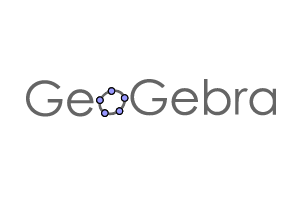
© International GeGebra Institute
GeoGebra – open software and materials for math and science
GeoGebra is free math software that gives you a simple, dynamic option for creating assignments, tables, and diagrams for algebra, geometry, analysis, or statistics. The platform now features over one million materials created by teachers and available under an open license for teaching math and science.
There’s something for every age group and class level, from basic arithmetic assignments, calculations of the volume of various bodies with customizable size parameters, calculations and presentations of derivative functions, and integrals of various function types. This allows students to explore and internalize interrelationships, prepare for exams, and increase their knowledge either on their own at home or with their classmates at school.
The software and app are free for anyone using them on a non-commercial basis. The app can be used either online through a browser or offline through the downloaded software. All the materials are available at no cost under Creative Commons licenses, typically CC-BY-SA. No registration is required to use GeoGebra.
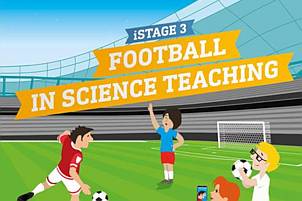
© Science on Stage Deutschland e.V.
Football in science teaching with iStage 3
What is the perfect curve of a ball’s trajectory? What special attributes must football field turf have? What is the World Cup’s carbon footprint?
The greater subject of soccer, or association football, is also perfect for discussing STEM subjects: Twenty teachers from fifteen European countries have developed twelve teaching units that illustrate how the popular sport scores goals in biology, chemistry, computer science, mathematics, physics, and technology classes. The brochure offers secondary school teachers a broad interdisciplinary spectrum of experiments – from air density measurements in the ball to the impact of energy drinks on players’ physical performance to calculations of the likelihood that a penalty kick will succeed – giving students the opportunity to independently discover and research the scientific phenomena of football.
“iStage 3 – Football in STEM education” is available for free download in English, German, Spanish, Hungarian, French, Polish, Czech, and Swedish.
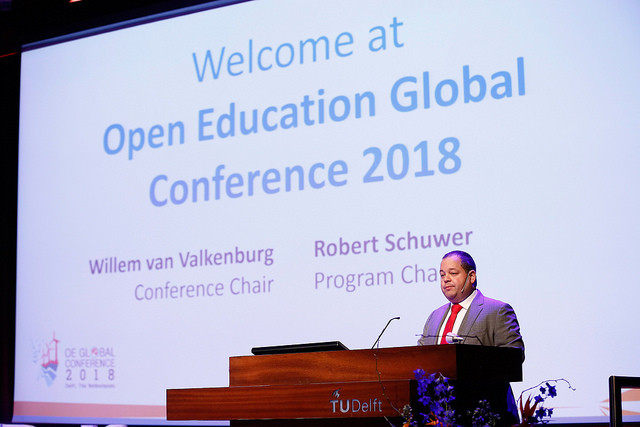
CC BY-3.0 Photographer: Roy Borghouts, Copyright owner: OEC/TUDelft
Record year for OE Global in 2018
With 386 participants from 45 countries, the OE Global Conference 2018 held in Delft, the Netherlands, attracted its highest number of attendees since the conference’s inception. The Open Education movement is growing throughout the world, as reflected in the wide variety of submissions from around the world for the announced awards.
This year, the Siemens Stiftung was on hand with a special task: During the official awards ceremony, Franziska Frost presented the Educator Awards of Excellence for innovative projects that promote the development or use of Open Educational Resources. One of the awards, for example, went to Lee-Ing Tong, a researcher from China. She has developed open statistics courses that support over 53,000 learners worldwide. Another award was given to Felienne Hermans from the Delft University of Technology. A supporter of open online education, she has founded several massive open online courses (MOOCs) to train children and teachers in programming.
The wide range of approaches to open education shows that open access can transform education in a number of different ways, from learning platforms for refugees to open research.
You can find information about the event and access presentations and videos from the keynote speakers and the OE Global webinar on the official website of the OE Global Conference.
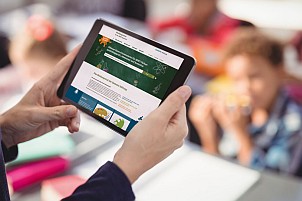
© Siemens Stiftung
New look, new content, exclusively OER
The Media Portal relaunch is complete. What’s unchanged: more than 3,500 quality-controlled teaching materials for STEM education. What’s new: We now rely entirely on OER, have broadened our outreach beyond teachers to include students, offer tips for integrating the media into teaching methods … and much more.
Dear users of the Media Portal,
We have redesigned the Media Portal for STEM teaching - from today on it is purely an OER (open educational resource) portal. Our goal is to organize the Media Portal to be more attractive, more informative, and more useful for you. We’re sending you this letter to inform you about the changes to the Media Portal. Your opinion is important to us and we’re grateful for your feedback, which you can send to mediaportal@siemens-stiftung.org.
How time flies! We went online with the portal for the first time in May 2009 with 600 media on the topics of energy, the environment, and health. Since then, our media offerings have continually expanded. In 2015, we officially joined the OER movement, meaning that all the materials we create can be downloaded, edited, and shared. The Media Portal currently offers over 3,500 OERs for use in science and technology subjects. The media are available in German, English, and Spanish.
Your use of the Media Portal encourages us in our work!
So far we have counted ...
- 1,949,713 downloads,
- 204,615 live views and
- 47,412 registered users from 120 countries
Here is a brief summary of the novelties to the Media Portal
- On the Media Portal, you will now find exclusively OERs, which means that you can download, edit, and share all media without registering. In the future, you will no longer be able to access older media on the Media Portal that were not available under a free license. However, we’re in the process of converting more and more media to OER.
- When you search for media in the future, you’ll be able to decide whether you want to search for media packages or individual media files. In addition, we have improved our filtering and sorting functions so that you can quickly find what you’re looking for.
- You’ll be able to store and manage media and media packages in personalized bookmark lists in the future. The bookmark list function allows you to view, download, and easily share grouped media with colleagues or students. You can maintain different bookmark lists for individual classes.
- In the “Methods” area, you will find information about selected teaching methods and forms of learning for science and technology education, such as web-based training on “Service learning in STEM subjects.” Sample materials are linked for implementation of the methods.
- There will be a separate student area with a selection of suitably prepared media on the topics of energy, the environment, and health for browsing, trying out, or experimenting.
In the “News” area and in our newsletters, we will continue to provide you with current information about OER, interesting events, and tips for other portals.
We hope you enjoy browsing and reading, and we look forward to receiving your feedback!
Your Media Portal Team
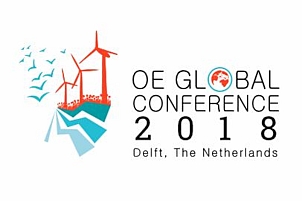
© Open Education Consortium
OE Global 2018 – How versatile is education?
The motto of this year’s OE Global Conference taking place in the university city of Delft, the Netherlands, is “Transforming Education through Open Approaches.” Key players and supporters of the OER movement will meet for the 11th time from April 24 to 26. You can look forward to lectures, discussion panels, and, of course, a lively exchange with the community.
The OE Global Conference is hosted by the University of Technology in Delft and the Open Education Consortium.
Siemens Stiftung will also be involved again: We are looking forward to giving the introductory speech for the Educator Award for Excellence as part of the many awards at the OE Global. This award honors educators who actively promote the development or use of open educational resources by creating innovative, effective solutions.
All persons interested in attending the conference still have until April 16 to register. Additional information about the conference is available here.
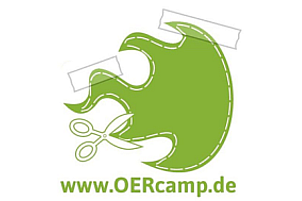
© Zentralstelle für Lehren und Lernen im 21. Jahrhundert
OERcamps to celebrate their 10th anniversary
The “Meetings on digital teaching and learning materials” in German-speaking countries will take place again starting in May. This year, in addition to attending discussions, the participants will also be celebrating – 2018 marks the tenth round for the OERcamps. Congratulations! Anyone who is interested in open educational resources may participate.
Registration is open until April 8. The camps for OER practitioners will take place at four different locations. The kickoff is in Bad Wildbad (Black Forest) on May 11, followed by the camps in Leipzig on May 25 and 26, in Hattingen (Ruhr district) on June 8 and 9, and in Hamburg on June 15 and 16, 2018.
The OERCamps consist of an official workshop program and contributions in the BarCamp format. This gives you the opportunity to spontaneously offer your own session at the venue. The event is organized by the ZLL 21 e.V. nonprofit association. Participation is free. You can also follow the hashtag #OERcamp18 on Twitter!
Jetzt das Medienportal mitgestalten!
Wie gefällt Ihnen unser aktuelles Medienangebot?
Welche Medientypen haben für Sie einen besonderen Mehrwert im Unterricht?
Wünschen Sie sich zusätzliche Funktionen auf dem Medienportal?
Mit der Teilnahme an dieser Umfrage können Sie mitgestalten, worauf der Fokus in Zukunft liegen soll.
Liebe Nutzerin, lieber Nutzer,
El Portal de Medios – das spanische Medienportal – ist umgezogen und heißt nun CREA.
Auf CREA finden Sie weiterhin hochwertige Medien für den MINT-Unterricht und vieles mehr.
Dear User,
El Portal de Medios - the Spanish Media Portal - has moved and is now called CREA.
On CREA, you will continue to find high-quality media for STEM education and much more.
Estimado usuario, estimada usuaria,
El Portal de Medios – en español – ha sido trasladado y ahora se llama CREA.
En CREA seguirá encontrando medios de alta calidad para la enseñanza de STEM, y mucho más.

Zu CREA wechseln / Switch to CREA / Cambiar a CREA
CREA - El Portal de Medios para la Enseñanza STEM
Hierbleiben / Stay here / Quédate aquí:
Fenster schließen / Close window / Cerrar ventana

